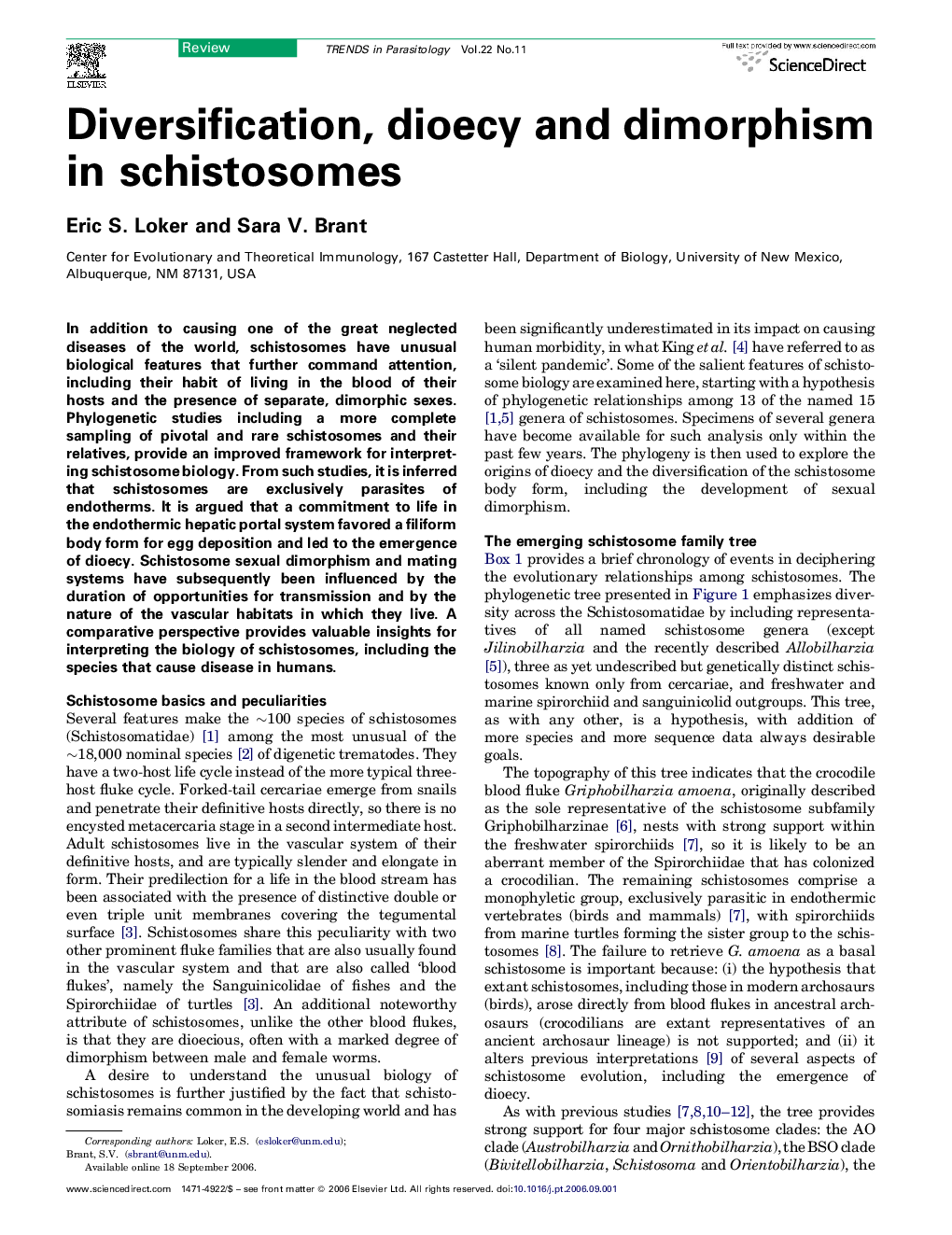| Article ID | Journal | Published Year | Pages | File Type |
|---|---|---|---|---|
| 3423767 | Trends in Parasitology | 2006 | 8 Pages |
In addition to causing one of the great neglected diseases of the world, schistosomes have unusual biological features that further command attention, including their habit of living in the blood of their hosts and the presence of separate, dimorphic sexes. Phylogenetic studies including a more complete sampling of pivotal and rare schistosomes and their relatives, provide an improved framework for interpreting schistosome biology. From such studies, it is inferred that schistosomes are exclusively parasites of endotherms. It is argued that a commitment to life in the endothermic hepatic portal system favored a filiform body form for egg deposition and led to the emergence of dioecy. Schistosome sexual dimorphism and mating systems have subsequently been influenced by the duration of opportunities for transmission and by the nature of the vascular habitats in which they live. A comparative perspective provides valuable insights for interpreting the biology of schistosomes, including the species that cause disease in humans.
